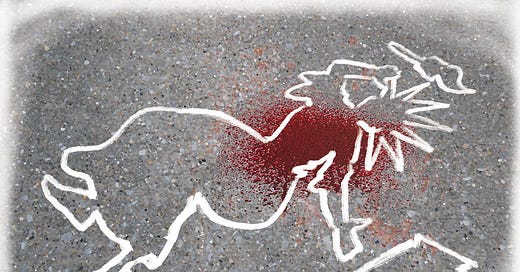Adjusting to the darkness
I flew to Chicago a few weeks ago, because I needed to go to Milwaukee. It’s not that I had bad aim, it’s that I wanted to roam a little. I was excited by the chance to drive an hour and a half from Chicago to Milwaukee on a freeway clogged with another region’s traffic instead of my own. I planned to take random exits off the f…
Keep reading with a 7-day free trial
Subscribe to Disobey in Advance to keep reading this post and get 7 days of free access to the full post archives.



